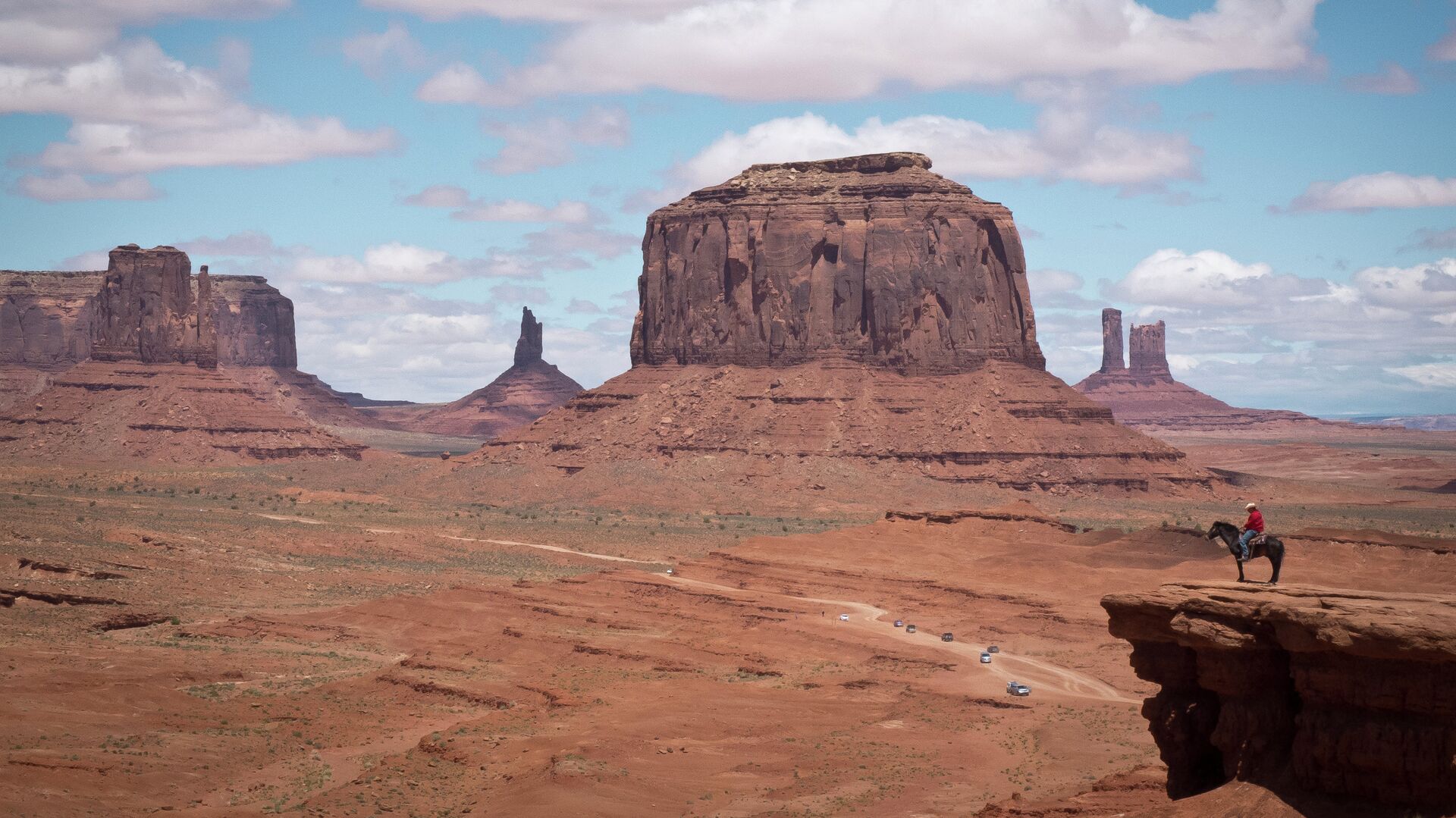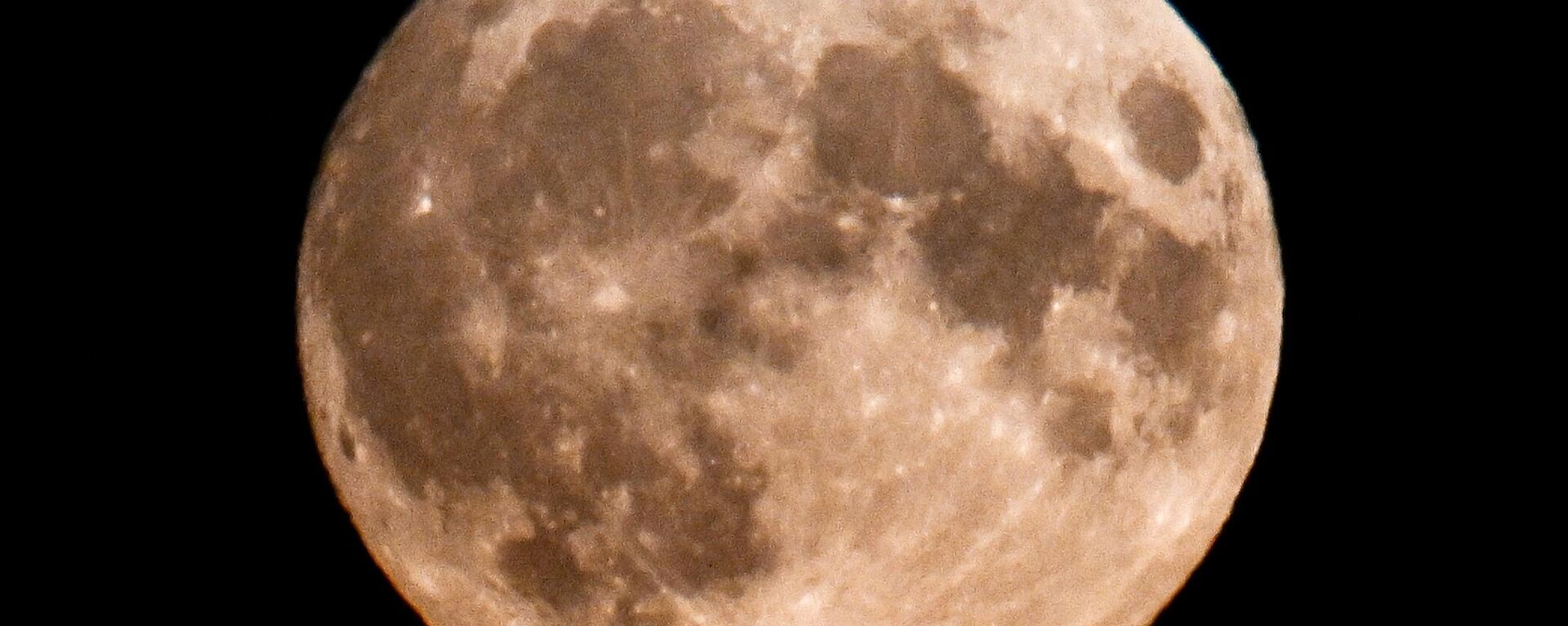https://en.sputniknews.africa/20240108/1064515640.html
Native Americans Condemn US Companies' Plan to Bury Human Remains on Lunar Surface
Native Americans Condemn US Companies' Plan to Bury Human Remains on Lunar Surface
Sputnik Africa
Private companies are planning to send human remains to the lunar surface, but a Native American group rejects the idea. 08.01.2024, Sputnik Africa
2024-01-08T05:11+0100
2024-01-08T05:11+0100
2024-01-08T09:41+0100
united states (us)
nasa
moon
lunar station
lunar soil
space
space exploration
international
company
https://cdn1.img.sputniknews.africa/img/07e8/01/08/1064515817_0:527:3917:2730_1920x0_80_0_0_1cf86e545ca5c795d6293880f85ef49f.jpg
Two private US companies are planning to rocket human remains into space for a burial on the moon, but the leader of the Navajo Nation has denounced the idea.Monday morning’s launch of the Peregrine lander represents the first effort by private companies to send a lander to the moon. United Launch Alliance and Astrobotic have contracted with various institutions seeking to contribute to the spacecraft’s payload – among them are two companies seeking to bury DNA and human remains on the lunar surface.But the Navajo Nation, which along with other Native American tribes views the moon as highly sacred, opposes the idea.Nygren calls the plan “an act of desecration” and has complained to the US Department of Transportation and NASA, whose Commercial Lunar Payload Services program sanctioned the launch.Kearns framed Monday’s launch as an opportunity to explore commercial opportunities created by space launches and insisted the US agency was powerless to intervene against the private companies. However the US government announced the creation of an “interagency group” to study the Navajo Nation's concerns.The US government has historically ignored Native tribes’ complaints against desecration of symbols they consider sacred, such as when a giant monument was carved from Mount Rushmore, known as Tȟuŋkášila Šákpe or “Six Grandfathers” to the Lakota people. The Sioux Nation has demanded the return of the land the massive sculpture was carved on, which the US Supreme Court found was illegally seized from the tribe.
https://en.sputniknews.africa/20240107/caution-raised-by-astronomers-over-potential-destruction-of-moons-resources-due-to-exploitation-1064503984.html
united states (us)
moon
space
Sputnik Africa
feedback@sputniknews.com
+74956456601
MIA „Rossiya Segodnya“
2024
Sputnik Africa
feedback@sputniknews.com
+74956456601
MIA „Rossiya Segodnya“
News
en_EN
Sputnik Africa
feedback@sputniknews.com
+74956456601
MIA „Rossiya Segodnya“
Sputnik Africa
feedback@sputniknews.com
+74956456601
MIA „Rossiya Segodnya“
united states (us), nasa, moon, lunar station, lunar soil, space, space exploration, international, company
united states (us), nasa, moon, lunar station, lunar soil, space, space exploration, international, company
Native Americans Condemn US Companies' Plan to Bury Human Remains on Lunar Surface
05:11 08.01.2024 (Updated: 09:41 08.01.2024) Private companies are planning to send human remains to the lunar surface, but a Native American group rejects the idea.
Two private US companies are planning to rocket human remains into space for a burial on the moon, but the leader of the Navajo Nation has denounced the idea.
Monday morning’s launch of the Peregrine lander represents the first effort by private companies to send a lander to the moon. United Launch Alliance and Astrobotic have
contracted with various institutions seeking to contribute to the spacecraft’s payload – among them are two companies seeking to bury DNA and human remains on the lunar surface.
But the Navajo Nation, which along with other Native American tribes views the moon as highly sacred, opposes the idea.
“We're not trying to say, 'don't do exploration, don't go to the moon and don't do those types of scenarios,’” said Navajo Nation President Buu Nygren in a call with reporters. “All we're just saying is this is the one part that we feel like there should be some sacredness to it.”
Nygren calls the plan “an act of desecration” and has complained to the US Department of Transportation and NASA, whose Commercial Lunar Payload Services program sanctioned the launch.
“We recognize that some non-NASA commercial payloads can be a cause for concern to some communities,” responded Joel Kearns, an administrator at NASA’s Science Mission Directorate. “And those communities may not understand that these missions are commercial and they're not U.S. government missions, like the ones that we're talking about.”
Kearns framed Monday’s launch as an
opportunity to explore commercial opportunities created by space launches and insisted the US agency was powerless to intervene against the private companies. However the US government announced the creation of an “interagency group” to study the Navajo Nation's concerns.
The US government has historically ignored Native tribes’ complaints against desecration of symbols they consider sacred, such as when a giant monument was carved from Mount Rushmore, known as Tȟuŋkášila Šákpe or “Six Grandfathers” to the Lakota people. The Sioux Nation has demanded the return of the land the massive sculpture was carved on, which the US Supreme Court found was illegally seized from the tribe.


